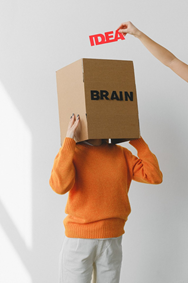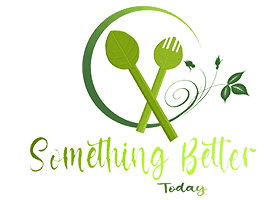Why between meals can be detrimental

Eating is imperative to the survival of humans. The nutrients and vitamins contained in food, enable our body to function properly, giving needed energy to complete daily tasks.
The suggested daily calorie intake for women is 2,000 calories, whereas men should eat about 2.500 calories each day. Generally, these calories are divided into three meals: breakfast, lunch, and dinner.
The general theory that nutrition experts suggest is that we should eat three balanced meals between 350 to 600 calories each, and 1-3 snacks around 150 and 200 calories. However, this varies depending on a variety of factors such as weight, height, age, gender, and activity level.
The reasoning behind this is that you should eat at least every five hours. When individuals go without food for a long period they become famished and their ability to make effective decisions declines. This results in them desperately searching for food, which can lead to poor food-making decisions.
Snacking: the good, the bad, the ugly
An unprepared food eaten in between breakfast, lunch, and dinner is commonly referred to as a snack. There are different types of snacks such as junk food and healthy snacks. Junk food is a cultural term that is applied to convenient food.
These foods are low in nutritional value and have a substantial amount of added salt, sugars, and fats, and are low in fiber. Some examples are cookies, potato chips, soft drinks, and biscuits. Whereas, healthier snacks such as fresh fruits and vegetables or legumes are normally filled with nutrients that the body craves and have no preservatives or additives.
Most individuals who snack are not planning their snacking but they are low on energy and need a little boost. This then leads them to find something quick that can fill their stomach. More often than not this is junk food. Eating junk food frequently between meals has severe adverse effects on the body.
Pros and Cons of eating between meals
Pros
- During hours between meals, if your blood glucose falls, snacking can give you a boost of energy.
- Curbs your appetite to prevent overeating at your next meal.
- If you are eating healthy snacks, it provides extra nutrients to the body.
Cons
- Weight gain
- Snacking too much can lead to a reduced appetite which may lead to skipped meals. This can be detrimental to your weight loss journey and even your health.
- Eating unhealthy snacks that contain added salt, sugar, and fats tend to have little nutrients. This can be bad for your health and can lead to numerous health issues.
Why eating between meals can be bad for you

Weight Gain
Individuals tend to snack out frequently of boredom, stress, or frustration. The reason for their behavior is usually not hunger, but that they have become accustomed to munching on food. Junk food provides no nutritional benefit to the body.
Weight Gain
In preliminary experimental evidence, eating between meals in a non-hungry state has more prevalence, and as a result, it should be discouraged.
Naturally, consuming more food during the day will result in a larger calorie intake. The number of calories you consume and the amount you burn during a day determine your calorie balance.
For instance, if a young woman consumes 2,600 calories in one day but only burned 100 calories she would be 500 calories over the recommended intake. This is called a calorie surplus.
This occurs when the amount of calories consumed exceeds the amount expended. Your body may store these additional calories as fat. Especially if you consume far more calories than you need.
Data from the U.S. national survey revealed eating 3 times a day was associated with a mean BMI value in the normal weight range while eating more than 3 times a day was associated with overweight BMI values.
Even if you believe you are eating smaller meals because you are nibbling more throughout the day, chances are they are not small enough to keep your weight stable. Instead, the key to a nutritious snack is to include complex carbohydrates, healthy fats, and fiber. This will guarantee that your day’s snack is a substantial meal rather than continuously feeling hungry and reaching for the chip bowl.
Irregular Eating Habits
Snacking can lead to irregular eating habits which slow down your body’s metabolism which once again can result in weight gain. According to studies, the metabolic rate of people who eat between meals is higher than the metabolic rate of people who do not eat between meals.
Frequent Snacking=Inflammatory Response
Snacking stimulates the immune system and causes a temporary inflammatory response. Inflammation is typical and healthy when eating only three meals a day. However, if you often snack, you are putting your body in a near-constant state of inflammation which puts unnecessary stress on your immune system.
Health Repercussions
May make you nauseous
Snacking when you are not hungry regularly can cause uncomfortable feelings such as nausea and indigestion. An adult’s stomach can hold about two and a half ounces (75 mL) when it’s empty but can hold about 1 quart (950 mL). This nauseous feeling normally occurs when you have eaten too much because you have started to reach the upper limit of your stomach. Sometimes nausea triggers vomiting. This bodily response occurs so that the body can release stomach pressure.
Even though nausea is treatable with medications, the best thing you can do is control your portions. Only snack when you are hungry in between meals, and eat slowly. This advice should help limit these feelings if you have them often.
Tooth Decay
Eating frequently increases the risk of tooth decay. By exposing your teeth to food more often, the plaque has more time to produce acid that damages the enamel. In particular, carbohydrate-rich foods are especially damaging because simple sugars in them feed plaque bacteria.
The food particles left behind by sticky foods, or food that gets stuck between teeth or in molar pits, take a longer time to dissolve, and thus, fuel acid production for longer periods of time. To improve oral health, eat the whole snack at once rather than nibbling it intermittently. To remove food particles from your mouth, rinse well with water, then brush and floss if possible.
High Cholesterol= Cardiovascular Diseases

Eating too many refined or sugar-rich foods may increase blood triglyceride levels while decreasing levels of health-promoting HDL cholesterol. People with these conditions are more likely to suffer from heart disease, especially if they are overweight.
Junk food contains a lot of bad fat, which in turn raises the bad cholesterol circulating in your body. Eating an abundance of these foods can lead to cardiovascular diseases. Additionally, the sodium found in fast foods is a risk factor for cardiovascular disease, including high blood pressure and stroke.
Produces more insulin
High sugar levels in junk food and typical snack foods force the body to produce more insulin. As a result, the body has frequent insulin spikes. Insulin’s job is to interact with glucose so that your body’s cells can use the glucose as energy.
The pancreas normally produces insulin when there is a spike in glucose levels which usually occurs after eating. This means the more you eat the more insulin spikes you will have. When there is excess glucose in the blood insulin prompts the body to store the glucose in the form of glycogen. This can lead to excess weight gain because your body is storing so much glucose but it can also lead to diabetes.

Diabetes
When you contract type 1 diabetes your pancreas can no longer produce insulin. Whereas in type 2 diabetes the pancreas still produces insulin but your body’s cells cannot use it. This is insulin resistance.
If Diabetes is uncontrolled glucose builds up in the blood instead of being stored or distributed to the cells. This can lead to many issues. Kidney disease, nerve damage, heart problems, eye problems, and stomach problems are among diabetes complications.
In order to live a comfortable life, people with type 1 diabetes need insulin therapy to survive. Whereas, only some individuals with type 2 diabetes need insulin therapy to control their blood sugar levels.
May impair brain function

Snacking can result in overheating which can lead to impaired brain function. Various studies link overeating and obesity in older adults to mental decline, in comparison with those who do not overeat. Since the brain consists of approximately 60 percent fat, consumption of avocados, nut butter, fatty fish, and olive oil may prevent mental decline.
What should I do?
This does not mean that you have to give up snacking forever. In fact, many dietitians recommend having a snack throughout the day, especially during the extended period between lunch and supper.
It is critical to nourish your body when it is hungry rather than needlessly munching on empty calories that will not truly fill you. Therefore, it is imperative that you limit your snacking and ensure that you are consuming healthy foods and not junk or fast food.
For example, an ounce of almonds and a small apple have roughly 240 calories, 7 grams of fiber, and a variety of vitamins, minerals, and antioxidants. Ten pretzel twists and a 16-ounce bottle of non-diet cola, on the other hand, provide 411 calories, 1.7 grams of fiber, over 100 grams of refined carbs, and 43% of the daily salt value.
It is important to plan breakfast, lunch, and dinner a reasonable but manageable time apart. If you wait too long to eat your glucose levels drop drastically which can lead to fatigue, irritability, and disorientation. This can also lead to a slower metabolism rate which can make it more difficult to lose weight.
Tips
- Drink water between meals to keep you hydrated.
- Consider your energy demands and make any required modifications to ensure that you do not exceed your daily calorie allotment when including snacks into a balanced diet.
- You should not eat sugary snacks as a routine, and you should avoid meals that provide you with empty calories. Such meals have minimal nutritional value and are rarely filling. Instead, you should choose entire meals that are nutrient-dense, have some fiber, and are low in calories. This will keep you full longer.
- Planning is imperative, it is important to plan your meals and ensure that what you want to eat is readily available. This makes it easier to stay on track whereas, if you just wait until you are hungry you are more likely to fall behind and eat less nutritious snacks and meals.
- Another tip that can help you avoid unhealthy snacking is to set timers for yourself to remind you when to eat. If you are a person that forgets when to eat or puts it off this can help. Or even when you are having a busy day sometimes it is difficult to find time to eat. This is also why planning is imperative because if you know you are going to be out for about 4-5 hours and will likely be hungry at that time you can take your lunch or snacks that you already had planned and it will make life much easier for you.
